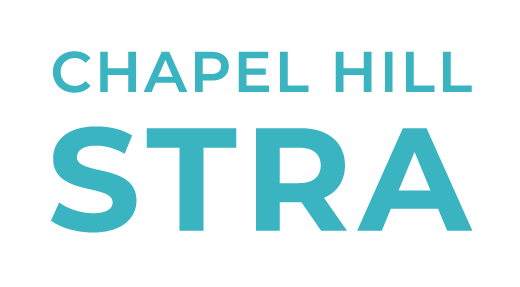Update 10/22: The Planning Department confirmed in an email to the task force that the charge from Town Council is to focus on investor-owned properties whether they are houses or other unit types. As written in the email:
The Council’s adopted resolution to create the task force specifies that the task force would focus on whole-house, non-owner occupied rentals. Sometimes these are referred to as investor-owned rentals. ‘Non-owner occupied’ is a slightly broader term, however. Per the Council’s charge, the task force should consider appropriate regulations for rental of any dwelling that is not the owner’s primary residence.
Read on to see why this is significant for all Chapel Hill hosts.
Additionally, the original version of this post included two action items that are no longer active.
For background, read previous legislative updates and Where We Stand posts on our Members page.
On October 16, the STR task force had its first meeting. The purpose of this meeting was to go over how the task force will work, what the charge is from the council, elect a chair and vice chair, and finalize the upcoming meeting schedule.
An important note: Per advisory board rules, we must abide by non-attribution when reporting on the meetings, meaning we cannot attribute comments to specific members. The CHSTRA will uphold this rule. Therefore, the only way for members to get complete insight into meeting discussions with specific comments made is to attend the meetings.
Task Force Chair(s)
Following discussion that the task force chair should be able to lead the group from a neutral standpoint, a suggestion was made for Alexa Nota, president of the Chapel Hill STRA, and Anthony Carey, GM of The Siena Hotel and chair of Visit Chapel Hill’s board of directors, to be equal co-chairs as they represent opposite stances on STRs. This was agreed upon by the task force.
Upcoming Task Force Meeting Schedule
The schedule for upcoming meetings was updated as follows:
Wednesday, 11/6 from 4:30 pm – 6:30 pm – Location TBD
Wednesday, 12/11 from 4:30 pm – 6:30 pm – Location TBD
Wednesday, 1/15 from 4:30 pm – 6:30 pm (tentative) – Location TBD
CHSTRA members are strongly encouraged to attend these meetings and voice your support of STRs during the public comment period at the end of each meeting. If you cannot make a meeting, you can email your testimony to Anya Grahn at agrahn@townofchapelhill.org.
Meeting Locations
Concerns were raised about the first meeting being held at The Siena Hotel. The CHSTRA believes this is a significant conflict and, outside of the meeting, has offered to help find a neutral meeting space. We are accepting suggestions for neutral meeting venues that meet the following criteria:
- Free
- Meeting table seating for 20
- Public audience seating for 20
- Minimum noise
- Projector and screen (could be supplied by someone other than the venue but is required for meetings)
Suggestions may be emailed to ChapelHillSTRA@gmail.com.
Task Force Charge
Much of the open discussion during the meeting centered on the task force’s charge, specifically what category of STRs the task force is to focus on.
In the September 11 council meeting, the council discussed dividing STRs into three buckets:
- Rentals of rooms or ADUs in which the owner remains on site
- Rentals of a primary residence in which the owner vacates the property during the stay
- Non-owner occupied rentals (aka “investor properties”)
The council charged the task force with a focus on bucket three, non-owner occupied properties, while town staff investigates regulations that would apply to all groups, to include registration and safety. Some suggestions were made to discuss the other two buckets separately at a later time. This discussion can be watched in the council meeting video here. The STR topic starts at 46:20, and the council discussion about STR categories starts at 1:11:00, 1:45:50, and 2:22:00.
However, at last night’s task force meeting, confusion arose around the definitions of buckets two and three as described in the planning department presentation. Some task force members asserted the group is charged with suggesting regulations for both, and discussion devolved to whether we should also include whole home primary occupant (bucket two) properties.
A member relistened to the council meeting and raised the issue again later in the meeting, with the result that the planning department would seek clarity from the council ASAP. The CHSTRA will update members as soon as we receive an update on this.
Update 10/22: The Planning Department confirmed with the task force that our charge is to focus specifically on non-owner occupied rentals, or so-called “investor properties.” As written in the email:
“The Council’s adopted resolution to create the task force specifies that the task force would focus on whole-house, non-owner occupied rentals. Sometimes these are referred to as investor-owned rentals. ‘Non-owner occupied’ is a slightly broader term, however. Per the Council’s charge, the task force should consider appropriate regulations for rental of any dwelling that is not the owner’s primary residence.”
Continue reading to understand why this clarification was needed and essential to local hosts.
Discussion
From this point forward, comments are general and not a report on the task force meeting.
The council’s 9/11 discussion was clear on the charge and categories – There should be no question our charge is for investor-owned properties whether they are houses or other unit types. This is clarified explicitly in the council meeting video at 1:59:25.
This is also confirmed in an email from Mayor Hemminger ahead of that meeting to the CHSTRA president that states:
Most of the Town Council is not concerned with hosts who rent out rooms of their house or with people who rent out their entire primary residence from time to time and we would like to leave that off the task force discussion. We will ask the task force to investigate a registration and safety check of all STRs but mostly we are concerned about whole house/unit rentals that are primarily an investment property.
This distinction is critical. While buckets two and three do have some common concerns, there is a big difference between STRs that are someone’s primary residence whose owners temporarily vacate their home during a guest’s stay and an STR that is never occupied by an owner or long-term tenant. Accordingly, they should operate under different rules.
Why This Matters
The council has already expressed that they are not concerned with the occasional rental of a primary residence and generally believes that this use should be allowed. With this, those owners’ rights are largely protected (for now.)
Should the task force charge now include this group, however, those rights will be at risk. Several members on the task force are those who submitted the petition to ban bucket three and limit bucket two to 14 nights per year, and they will push for over-reaching, severe limitations and potentially a total ban on both groups as one. This cannot happen.

